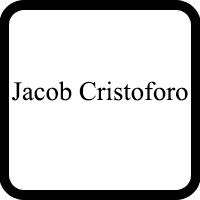 Twining Juvenile Law Lawyers, Michigan
Twining Juvenile Law Lawyers, Michigan
Sponsored Law Firm
-
 x
x

Click For More Info:
-
Goldman & Associates
615 Griswold St. Suite 1325 Detroit, MI 48226» view mapProbate Over 30 Years Experience
Accessibility, responsiveness, and personal commitment is our approach to client representation.
800-797-8031
Not enough matches for Twining Juvenile Law lawyer.
Below are all Twining Criminal lawyers.
Sponsored Lawyers
1-4 of 4 matches
P.O. Box 428
Standish, MI 48658
Criminal, Divorce & Family Law, Litigation, Traffic, Misdemeanor
Jacob Cristoforo is a practicing attorney in the state of Michigan.
(more)


 Akiva Goldman Detroit, MI
Akiva Goldman Detroit, MI AboutGoldman & Associates
AboutGoldman & Associates Practice AreasExpertise
Practice AreasExpertise

